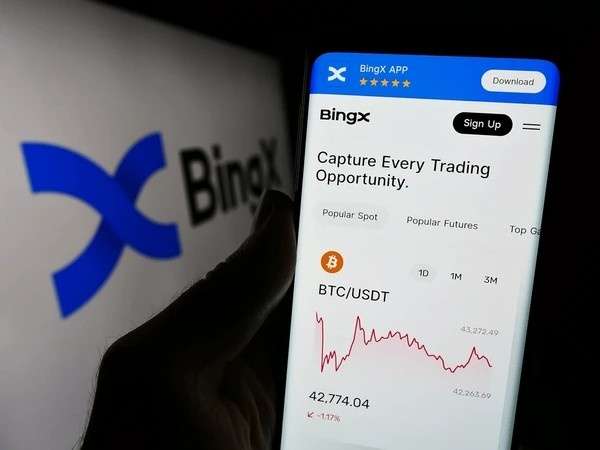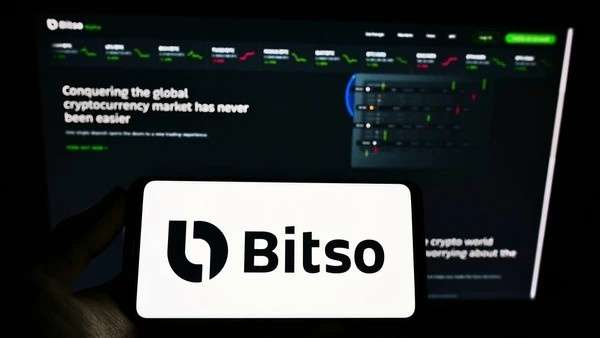Cryptocurrencies have undeniably transformed the way we think about money, transactions, and digital assets. Among the emerging players in this space is Aptos (APT), a blockchain that promises to bring significant innovations to the world of decentralized finance (DeFi). If you’re curious about this cryptocurrency and what it might mean for the future of blockchain technology, this article is for you. I’ll explore Aptos in depth, from its inception to its underlying technology, and how it compares to other major cryptocurrencies. Let’s break it down step by step.
Table of Contents
What is Aptos?
Aptos is a relatively new layer-1 blockchain, designed to provide a fast, secure, and scalable environment for decentralized applications (dApps). At its core, Aptos seeks to address some of the critical issues faced by earlier blockchains, particularly around scalability, transaction speeds, and security. Developed by former Meta (Facebook) engineers, Aptos has a solid foundation built on the Move programming language, a novel approach to smart contract development.
The blockchain is designed to handle high throughput, enabling thousands of transactions per second (TPS), which is a crucial factor for any blockchain that wants to gain mass adoption. Unlike other blockchains that have struggled with slow speeds and high costs during peak traffic times, Aptos promises a more efficient system. But does it live up to its claims? Let’s take a closer look.
The Key Features of Aptos
Aptos stands out in several areas, including scalability, security, and developer experience. Here’s a breakdown of its key features:
1. Scalability
Aptos boasts a high transaction throughput, processing more transactions per second than many existing blockchains like Ethereum and Bitcoin. This scalability is one of its most significant advantages. The blockchain uses a parallel execution engine, meaning it can process many transactions simultaneously, unlike traditional blockchains that handle transactions one at a time.
2. Move Programming Language
Aptos uses the Move programming language, developed specifically for the blockchain. Move is designed for secure and flexible smart contracts. It enables the creation of more complex, customizable, and secure decentralized applications (dApps) with lower risks of bugs or vulnerabilities, which is a significant problem in other blockchains.
3. Security
Aptos incorporates advanced security features, including formal verification of smart contracts. This means the blockchain has mechanisms in place to verify that contracts will execute as intended, reducing the likelihood of errors and exploits. It’s a much-needed feature as the blockchain space continues to mature and demand higher security.
4. Low Latency
Aptos focuses on reducing latency to make transactions faster. The network ensures that users experience minimal delay, allowing for near-instantaneous confirmation of transactions, which is crucial for both DeFi applications and real-world use cases.
5. Decentralization
While the network is still in its early stages, Aptos emphasizes decentralization in its architecture. As the network grows, it will be governed by a wide array of validators, ensuring that no single entity controls the network.
Comparing Aptos to Other Cryptocurrencies
To better understand where Aptos fits into the larger blockchain ecosystem, let’s compare it with some of the most well-known cryptocurrencies and blockchain platforms.
| Feature | Aptos | Bitcoin | Ethereum | Solana |
|---|---|---|---|---|
| Transaction Speed | 160,000+ TPS | 7 TPS | 30 TPS | 50,000+ TPS |
| Transaction Cost | Low | Low (variable) | Moderate (gas) | Low |
| Security | High | High | High | High |
| Scalability | Excellent | Poor | Moderate | High |
| Developer Tools | Move Language | Bitcoin Script | Solidity | Rust, C |
| Governance | Decentralized | Decentralized | Decentralized | Semi-Decentralized |
How Aptos Works
Aptos aims to solve the scalability problem faced by many blockchains. Let’s break down how the technology works behind the scenes.
1. Parallel Execution
Unlike traditional blockchains that execute transactions one after another (sequential execution), Aptos uses parallel execution. This allows the blockchain to process multiple transactions at the same time, significantly boosting throughput and reducing bottlenecks.
2. Transaction Efficiency
Aptos’ transaction model uses a concept called “block-structured transactions.” By bundling transactions together, the network can process them more efficiently. This method reduces delays and ensures that transactions are confirmed more quickly.
3. On-Chain Data Storage
Aptos supports a vast amount of data storage on-chain, making it easier for developers to create decentralized applications that can access this data securely and efficiently. This feature makes it particularly appealing for projects looking to build decentralized financial products.
The Move Programming Language
Move is an essential part of Aptos’ architecture. This programming language was specifically designed for blockchain development and focuses on safety, flexibility, and high performance. Unlike traditional programming languages used in other blockchains, Move allows for more control over the assets being managed within the blockchain. This provides higher security and reduces the risk of issues such as accidental losses or vulnerabilities.
One of Move’s key features is its resource-oriented programming model. This means that the language treats assets like digital tokens as resources that are created, transferred, or destroyed. The system ensures that assets are never double-spent or lost, adding an additional layer of security.
Use Cases for Aptos
Aptos opens up a range of possibilities for developers and users alike. Let’s explore some potential use cases for the blockchain:
1. Decentralized Finance (DeFi)
Aptos is well-suited for DeFi applications due to its scalability and low transaction costs. Developers can build complex DeFi protocols with lower risks of congestion and high fees. With its high throughput, Aptos can handle large-scale DeFi platforms that require thousands of transactions per second.
2. Gaming and NFTs
Another use case where Aptos shines is in gaming and non-fungible tokens (NFTs). The blockchain’s low latency and high throughput make it ideal for gaming applications, where fast transactions are crucial for a smooth experience. NFTs can also benefit from the blockchain’s scalability, allowing for greater adoption in the digital art and collectibles space.
3. Enterprise Solutions
Aptos can be used for enterprise blockchain solutions, offering faster transactions, secure data management, and a scalable infrastructure for businesses. The blockchain can be integrated into supply chains, financial services, and many other sectors that require robust data handling and secure transactions.
Investing in Aptos
When considering investing in Aptos, it’s essential to understand the factors that affect its price and long-term viability.
1. Adoption
The success of Aptos depends heavily on the adoption of its blockchain by developers, projects, and businesses. A large number of dApps and decentralized projects being built on Aptos will drive demand for its native token (APT), which could increase its value over time.
2. Tokenomics
Aptos’ native token, APT, is used to pay for transaction fees and participate in network governance. The total supply of APT is capped, which can create scarcity as demand grows. Understanding how the tokenomics play out in the long term is crucial for investors.
3. Competition
Aptos competes with other high-throughput blockchains like Solana and Avalanche. The ability of Aptos to maintain its scalability, security, and developer tools will be key to its success in the face of strong competition.
Conclusion
Aptos is an exciting addition to the blockchain space. With its high scalability, secure architecture, and innovative Move programming language, it has the potential to revolutionize how decentralized applications are built and used. While the project is still in its early stages, it has garnered significant attention and support from developers and investors alike. Whether you’re a developer looking for a fast, secure blockchain or an investor seeking new opportunities, Aptos is definitely a project to keep an eye on.
As with any investment or technological shift, it’s essential to do thorough research and stay informed. The blockchain space is volatile, and while Aptos shows great promise, it’s not without risks. But if it lives up to its claims, Aptos could play a significant role in shaping the future of decentralized applications and the broader blockchain ecosystem.





